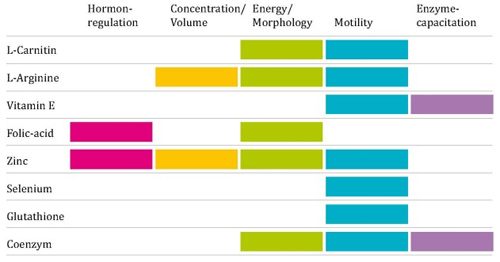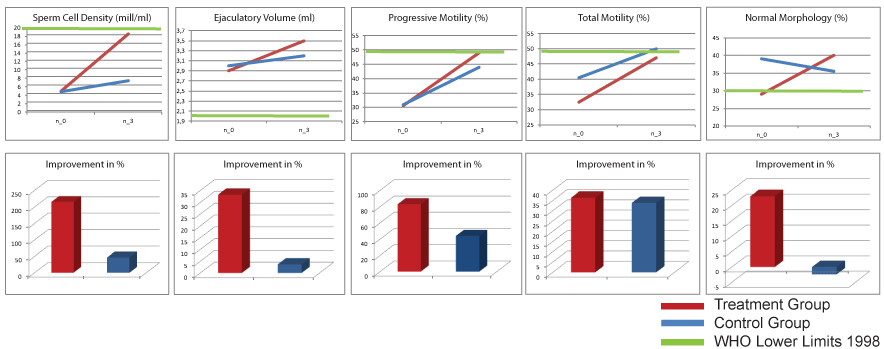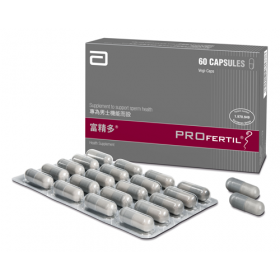Product Categories
Most popular


PROfertil is a medical dietary supplement rich in micronutrients which work to improve male fertility levels. It contains the vitamins, minerals and enzymes which are already present in the body and necessary for healthy sperm production.
Lifestyle and diet may cause some of these essential nutrients to be deficient in the body, so PROfertil is the ideal supplement to take by men who are trying for a baby; it nourishes the body which in turn creates energetic, healthy sperm.
So what are the magic baby-making micronutrients included in PROfertil?:
L-carnitine
Acts as an energy substrate for sperm cells. Helps to increase sperm motility and survival.
L-arginine
This amino acid is used all over the body for healthy cellular function, so it helps to ensure sperm is healthy and functioning properly.
Coenzyme Q10
Also known as CoQ10, this substance produces energy in cells and can therefore help to improve sperm motility and fertilisation rates.
Vitamin E
This antioxidant is really important for a healthy immune system. It also can help sperm cells to penetrate through the egg.
Zinc
This element can help to increase sperm density and increase testosterone levels to improve spermatogenesis (the process of sperm cells being produced).
Folic acid
This is essential for cell growth and cell division, so not only does it help with increasing volume of sperm, it can also increase the quality and health of sperm too.
Glutathione
An essential component in the process of sperm production, Glutathione is composed of 3 amino acids and ensures that the seminiferous tubules (where sperm is produced in the testes) function healthily.
Selenium
This helps to protect each individual sperm cells as well as improving sperm motility.

PROfertil is clinically proven to increase sperm count, motility and ejaculatory volume.
A study was undertaken with a test sample of 95 men at an average 36.2 years with at least 2 pathological spermiograms. The test subjects took 2 PROfertil capsules a day for three months after which time another spermiogram was performed. The average sperm cell density increased by 80.5% and the total sperm motility increased from 33.13% to 49.27%. In the end, 21 out of 82 now had normal test results and 14 pregnancies were reported!









